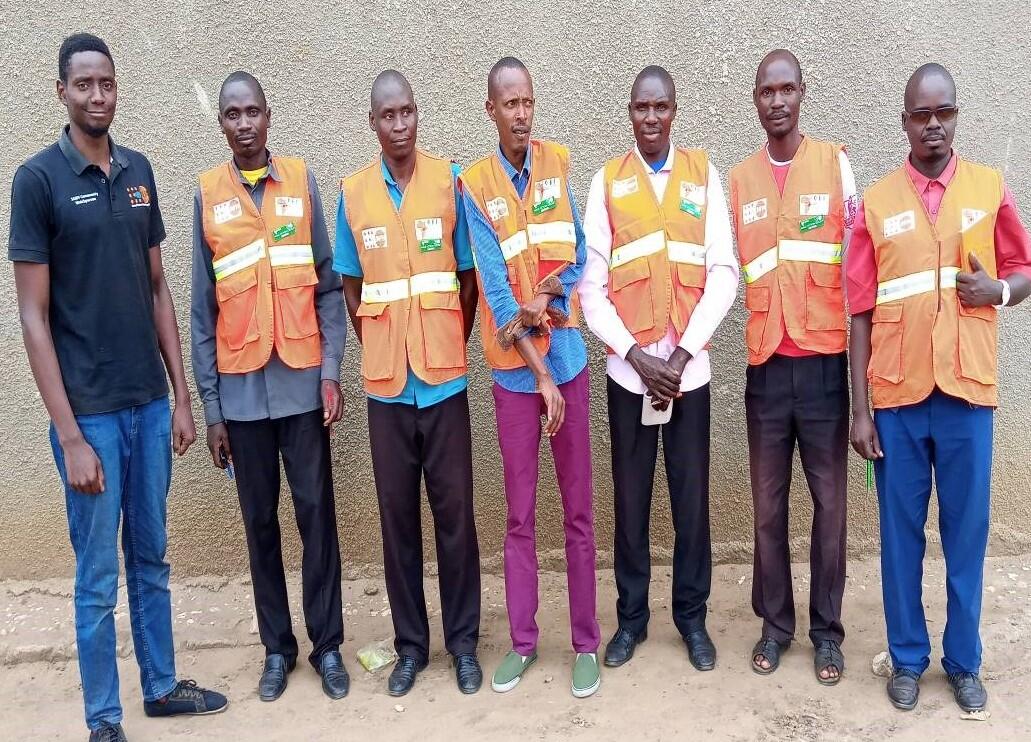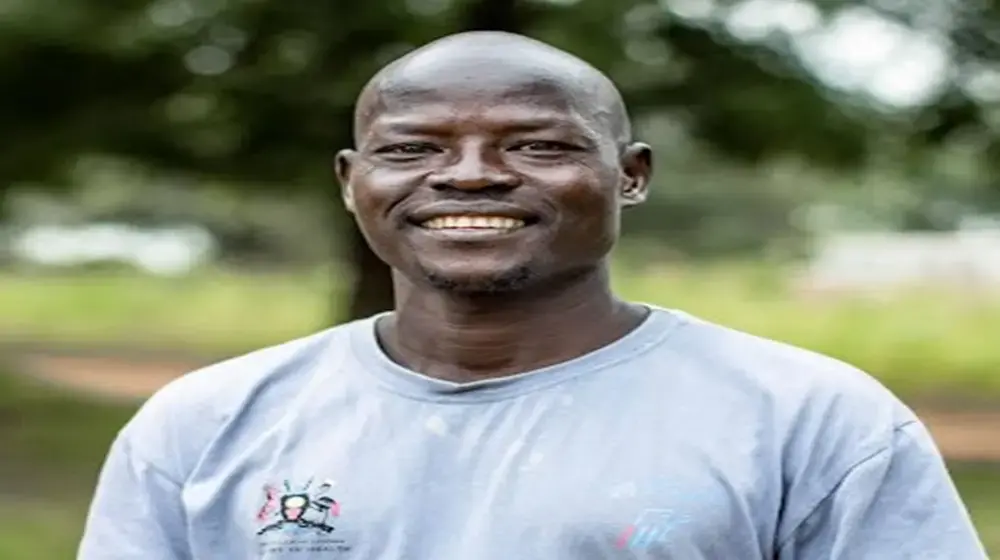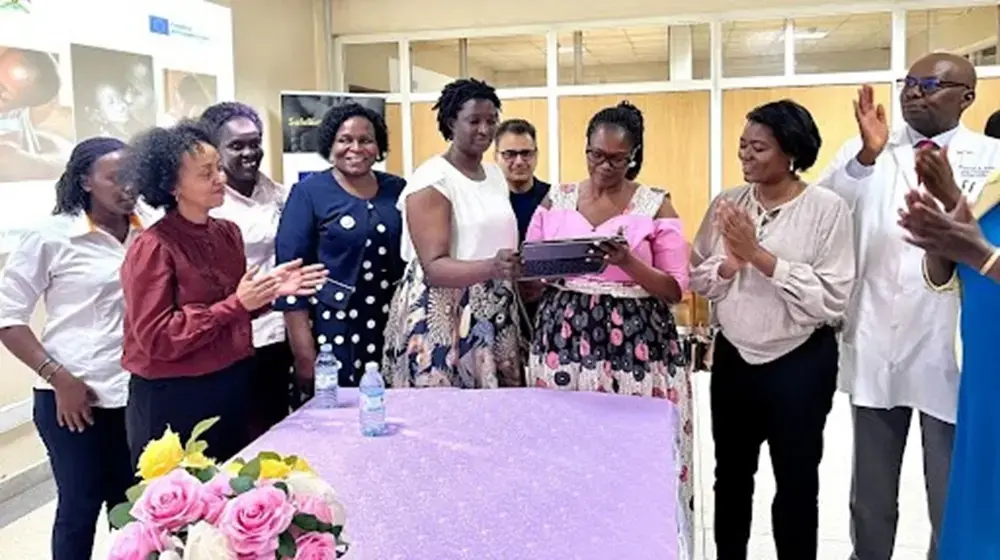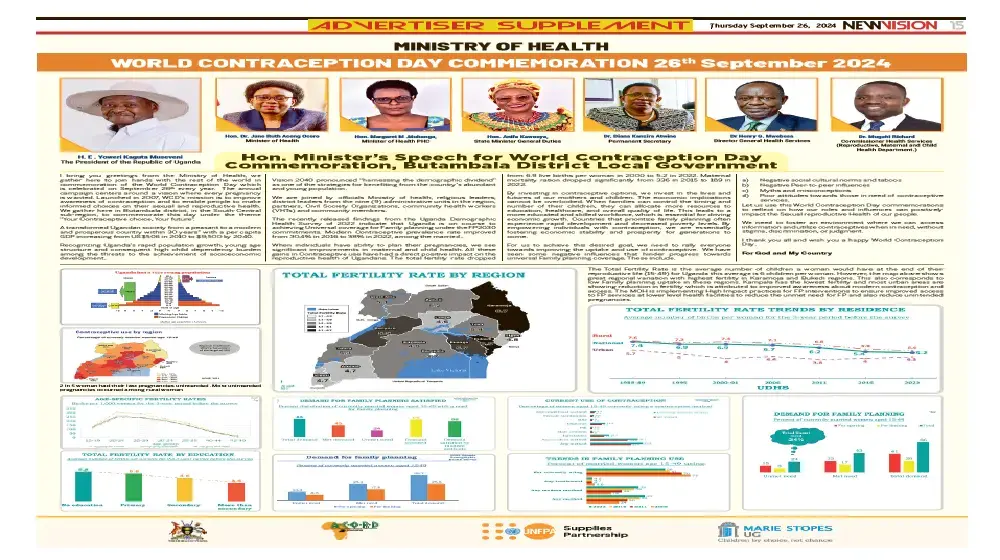BYISINGOMA, Uganda - “I used to see my wife as someone with a ‘big head’, so we would always fight over small issues and we never had peace at home,” says Julius Tumwesigye, a farmer and father of two who lives in Byisingoma, a village in the western district of Kyegegwa.
His relationship with his wife changed for the better when he attended a five-day training course on preventing gender-based violence (GBV), which he says equipped him with the knowledge and skills to discuss problems and communicate in an understanding way. “We no longer have those quarrels and we have a happy family,” he says.
Mr. Tumwesigye is one of 35 male action mentors who received Spotlight Initiative-supported training in Kyegegwa. The training sessions, conducted by the NGO ACORD, engage men on the issues of gender-based violence and sexual and reproductive health by empowering them to become a force for change within their families and communities.
“Before the training, there were many issues that arose in the community which were handled by the local councils but which kept recurring,” says Mr. Tumwesigye, recalling a domestic violence incident at his neighbour’s house. “I wasn’t concerned with such issues because I believed that my neighbours’ problems affected them alone,” he says. Following the training, his attitude changed.
Male action mentors like Mr. Tumwesigye help communties to report cases of violence. Photo: UNFPA Uganda
“Nowadays, I am called by couples from all over Kishagazi [parish] as well as neighbouring communities to help resolve their conflicts,” says Mr. Tumwesigye. “I am even asked by community councillors to speak about sexual and gender-based violence at special community gatherings, which I would never have done in the past.”
Through working closely with local councils, police and community activists, male action mentors address violence by supporting communities to report, manage and refer cases of GBV, as well as by calling out the attitudes that perpetuate harmful behaviour.
Violence against women in Uganda
In Uganda, gender inequality and violence against women is widespread. According to the Uganda Demographic Health Survey (2016), 56 per cent of married women have experienced spousal violence, including physical, sexual and emotional violence.
Coronavirus lockdowns place even more women at risk, with school closures, travel restrictions, and social and economic turmoil creating the perfect conditions for violence to thrive. In Kyegegwa, UNFPA has partnered with ACORD to address violence against women and girls, harmful practices and reproductive health. Male allies like Mr. Tumwesigye are essential to that mission. In just six months, they have reported and referred 88 cases of gender-based violence.
“I now understand that my neighbour’s problem is my problem,” says Mr. Tumwesigye. “This [training] has enabled me to see my family and those around us in a new light.”
By Desmond Sekyewa.
This story first appeared on the website of the EU-UN Spotlight Inititaive to end violence against women and girls
https://www.spotlightinitiative.org/news/ugandas-male-action-mentors-ar…





